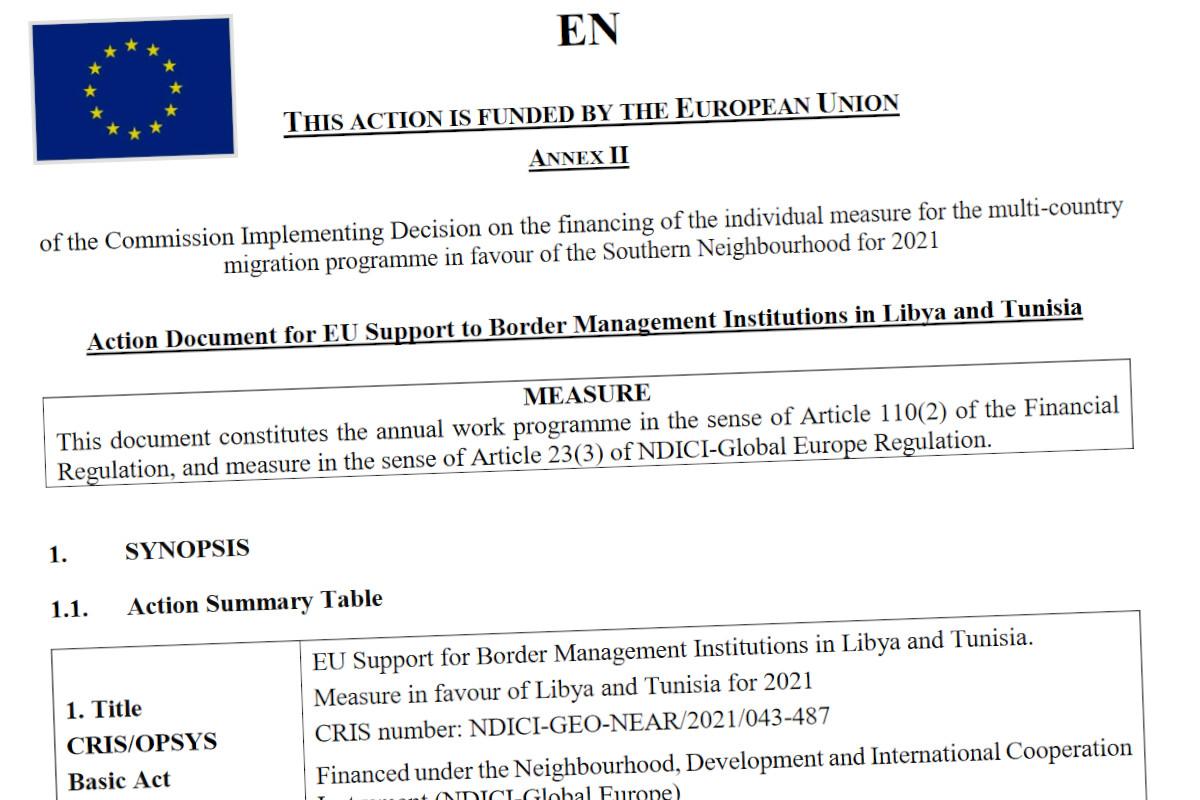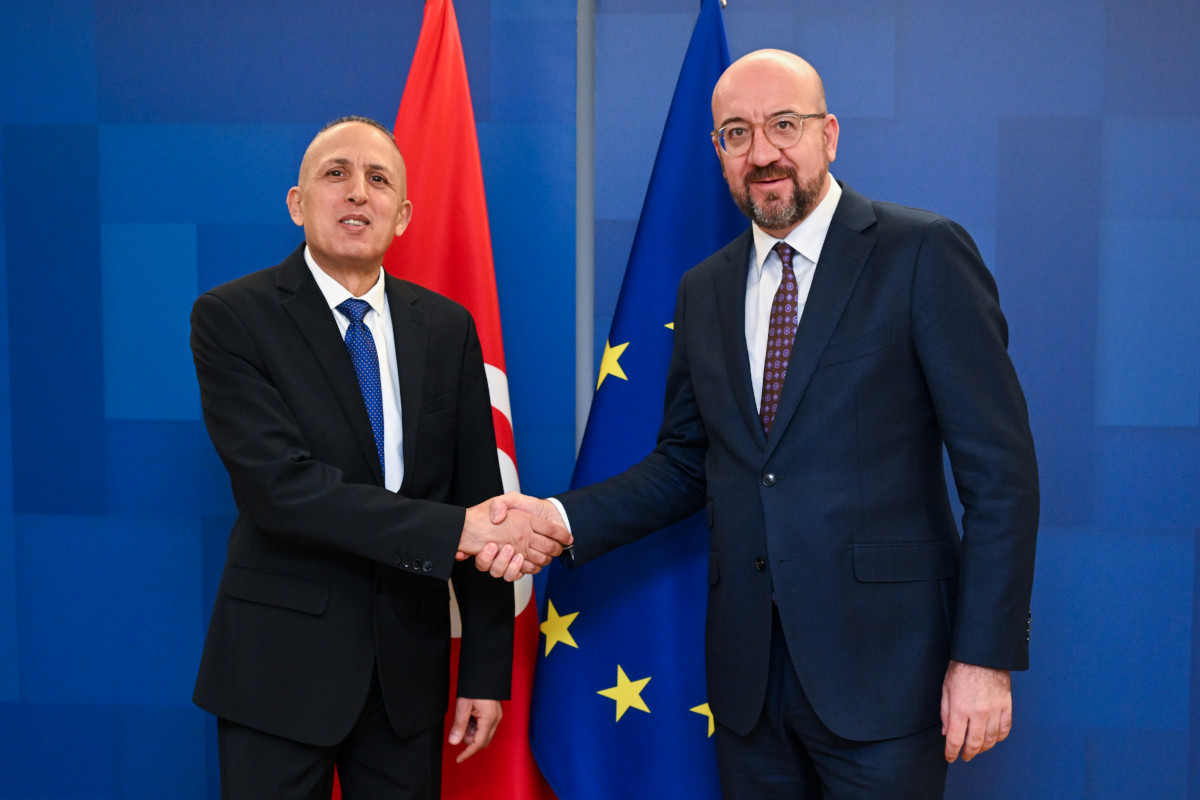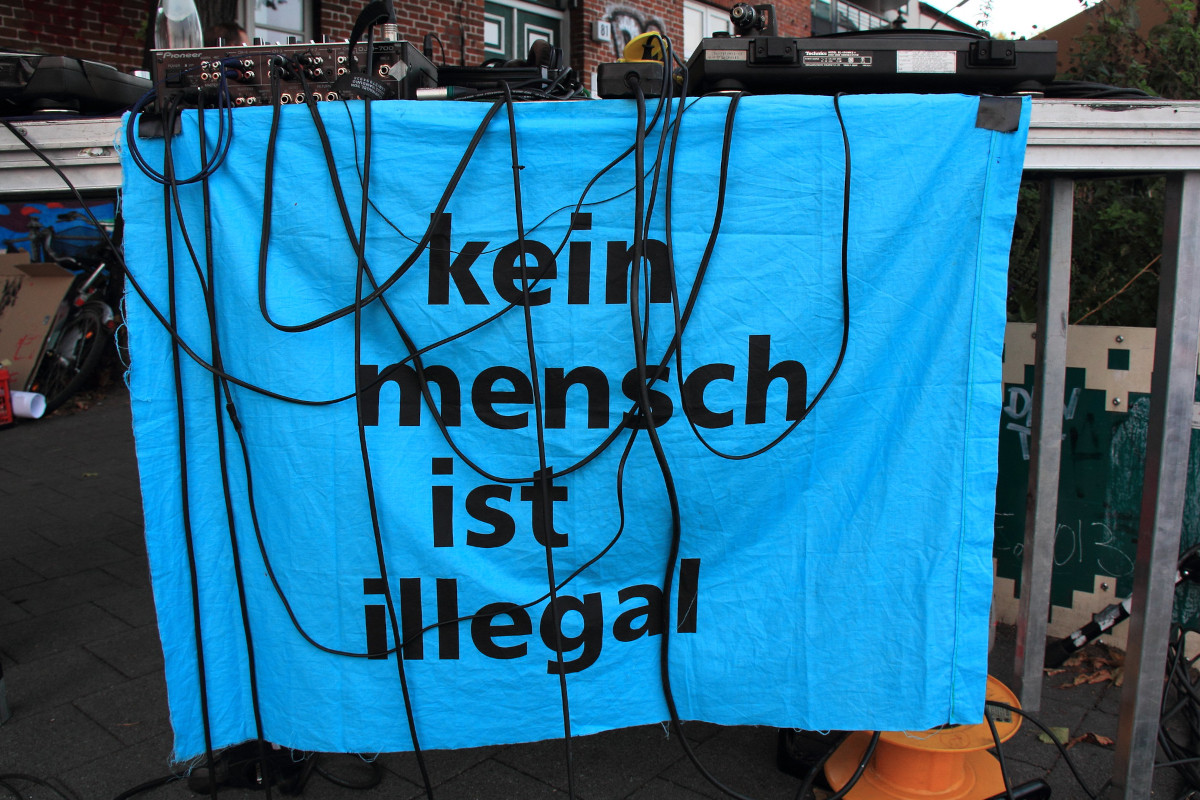Border externalisation: documents from the Coordination Group on Migration published
Topic
Country/Region
25 November 2024
Statewatch is publishing more than a dozen documents from the Coordination Group on Migration, a secretive body in which the European Commission and EU member states coordinate expenditure on external migration control projects.
Support our work: become a Friend of Statewatch from as little as £1/€1 per month.

The documents include detailed overviews of a number of proposed projects in North Africa, such as 'EU Support for Border Management Institutions in Libya and Tunisia' and 'Supporting Sustainable Protection, Return and Reintegration in North Africa'.
There are also a number of shorter "project fiches", covering proposed projects such as 'Strengthening the operational capacity of the Egyptian Navy and Border Guards in managing migration flows and provide Search and Rescue at sea' and 'international cooperation against migrant smuggling and trafficking in human beings in North Africa'.
The documents are being published alongside the latest edition of the bulletin Outsourcing borders: Monitoring EU externalisation policy, in partnership with migration-control.info.
The bulletin also contains analyses on possible future changes to EU deportation law; and the growing role of Frontex in reintegration policy, and its effects in The Gambia and Nigeria.
The analyses on reintegration policy notes that Frontex is being granted a more substantive role in reintegration policy, with the agency seeking to harmonise and standardise approaches across the EU and its member states.
However, it warns that this has "severe consequences in West African countries": in The Gambia, Frontex's role has led to complications and confusion for deportees; and in Nigeria, questions have been raised over both a lack of transparency and support for deportees.
The analysis on EU deportation policy looks at a number of recent Council documents published with previous editions of the externalisation bulletin.
It notes that the Hungarian Council Presidency has focused discussions on "expanding detention, introducing extraterritorial deportation camps, and watering down safeguards, likely with a view to making the Commission’s forthcoming proposal for a new deportation law even harsher for individuals."
The latest externalisation bulletin is available here, and the ongoing archive of documents is here.
Our work is only possible with your support.
Become a Friend of Statewatch from as little as £1/€1 per month.
Further reading

European support for human rights violations in Tunisia "must end"
"European policies to externalize border management to Tunisia are supporting security authorities who are committing serious violations" of human rights, says a joint statement signed by dozens of organisations from Europe, North Africa and beyond, including Statewatch. The statement calls on the EU and its member states to demand that Tunisian authorities respect human rights, end their crackdown on civil society organisations, ensure that people rescued at sea are not disembarked in Tunisia, and to end their financial and technical support to Tunisian security authorities.

Out of sight, out of mind: EU planning to offshore asylum applications?
In a letter sent to EU heads of state last month, European Commission president Ursula von der Leyen named 2024 “a landmark year for EU migration and asylum policy,” but noted that the agreement on new legislation “is not the end.” She went on to refer to the possibility of “tackling asylum applications further from the EU external border,” describing it as an idea “which will certainly deserve our attention.”
Spotted an error? If you've spotted a problem with this page, just click once to let us know.

